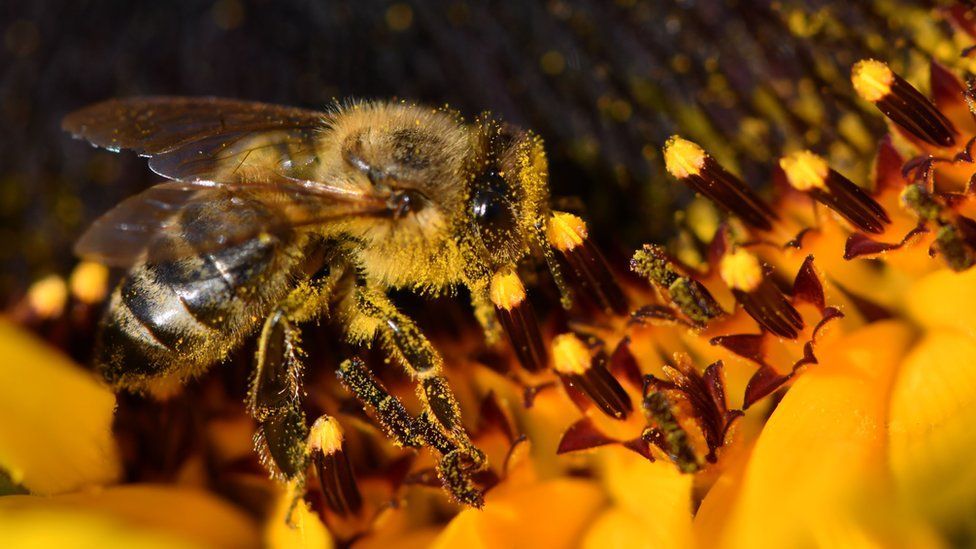ARTICLE AD BOX
 Image source, Getty Images
Image source, Getty Images
Neonicotinoids disrupts bees' ability to navigate and reproduce
By Malcolm Prior
BBC News rural affairs producer
The UK government has given emergency approval for the use of a pesticide banned because of the harm it can cause bees, for the fourth year in a row.
Permission to use the neonicotinoid on sugar beet seeds has been needed despite a vow by the industry to find an alternative by the end of 2023.
The Wildlife Trusts said the decision was a "deathblow" for wildlife.
The government said it was a "necessary and proportionate measure" to tackle a damaging crop virus spread by aphids.
It added that the product - which has been banned since 2018 - can only be used if an independent, scientifically-verified level of threat posed by the disease, Virus Yellows, is met in March.
That threshold will be a 65% infection across the national sugar beet crop.
'Safe and responsible use'
The NFU said the Virus Yellows disease had already caused sugar beet crop losses of up to 80% in recent years and threatened an industry with more than 9,500 jobs.
Sugar-beet farmer Michael Sly, who has land across north Cambridgeshire and south Lincolnshire and is the chair of the NFU's sugar board, said he was "relieved" the derogation had been granted.
He said farmers would "ensure safe and responsible use of the treatment" if the pesticide had to be used.
"The homegrown sugar industry is working hard to find viable, long-term solutions to this disease," he added.
Environmental and wildlife campaigners warned that the neonicotinoid - a seed treatment called thiamethoxam - disrupts bees' ability to navigate and reproduce.
Barnaby Coupe, land use policy manager at The Wildlife Trusts, said the decision to authorise its use was "a deathblow for wildlife, a backwards step in evidence-based decision making, and a betrayal of farmers who are producing food sustainably".
Richard Benwell, CEO of Wildlife and Countryside Link, a coalition of environmental and rural campaign groups, said the decision "flies in the face of ecological sense".
Back in 2020, British Sugar - which supplies 60% of the UK's sugar - had told the government that in three years it would have developed alternatives to the seed treatment.
Dan Green, the company's agriculture director, told the BBC that research was continuing and included "research into how the industry can benefit from gene editing".
The company hopes Virus Yellows resistant crops will be available commercially by 2026.
Farming Minister Mark Spencer said his decision had been based on robust scientific assessment with risk evaluated "very carefully".
"We recognise the damaging impact that an outbreak of beet yellow virus could have on farmer livelihoods. We therefore regard issuing an emergency authorisation as a necessary and proportionate measure," he added.

 1 year ago
44
1 year ago
44








 English (US) ·
English (US) ·